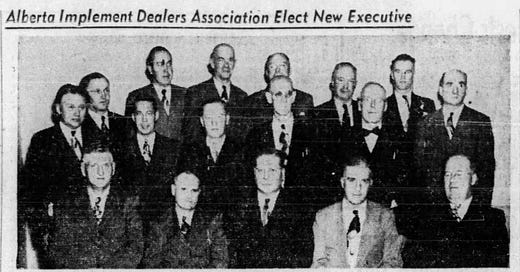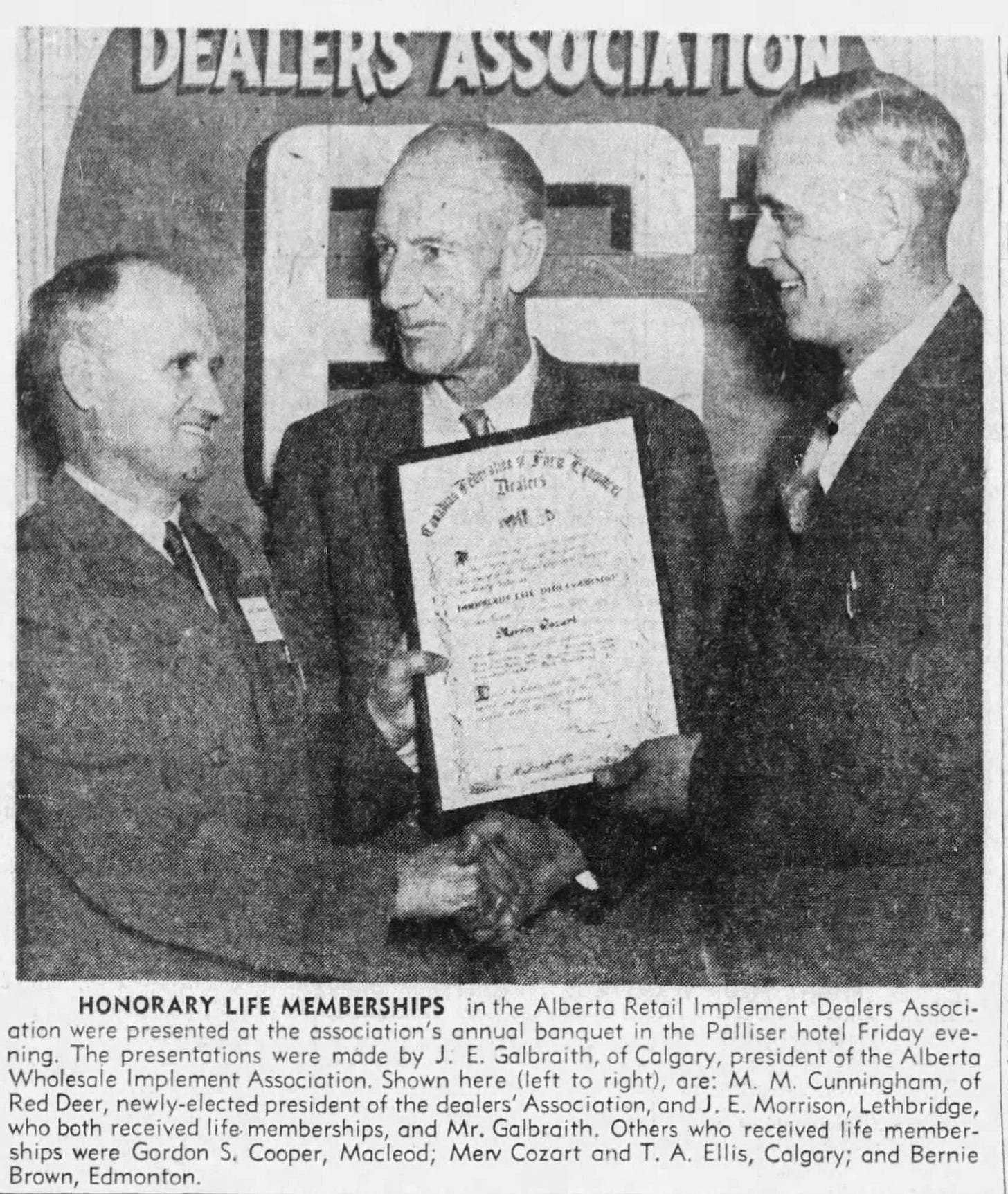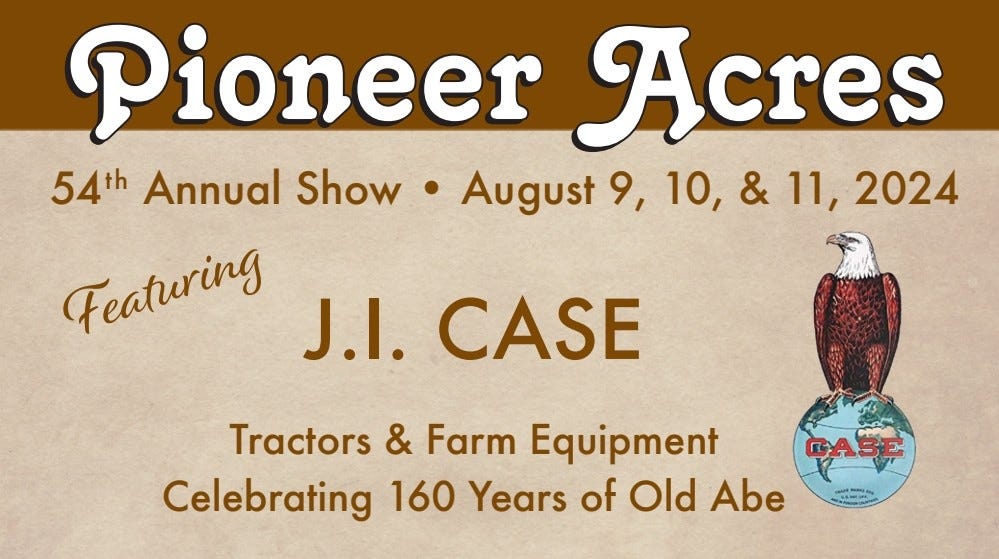At Pioneer Acres, the story of how agriculture and industry operated in the first half of the twentieth century is showcased through artifacts and exhibits. A significant side of the story that we would like to expand on is the role agricultural dealerships played during that time.
Equipment dealers also participated in the structured and formalized shaping of agriculture, and this required dealers from across the province to team up to discuss issues that faced everybody. That will be the focus of the blog today.
The first implement dealers’ association in Canada was formed in Manitoba in 1927; Alberta equipment dealers followed suit in 1943. Familiar Calgary businesses in the group were represented by Torrey Ellis (Massey Harris) and Gordon S. Cooper (Minneapolis Moline). The association had members from across the province, including representatives from Lethbridge, Grande Prairie, Red Deer and Vegreville.
Professional yearly conventions were held in locations such as the Palliser Hotel, and the hot button issues facing agriculture and the businesses that served them were addressed. For example, The Edmonton Journal, reporting on the convention in 1946, related that the event showcased soil conservation and weed control. The keynote speech that year was delivered by A. J. Mather from the Department of Agriculture on “The Business of Farming”. Mather noted, “If the farm does not pay, there will not be customers for implement dealers.”
On another occasion, the Association’s convention addressed matters of Farm Safety. The Worker’s Compensation Board presentation asked the group to reflect on whether farmers were promptly warned and informed about the dangers of the equipment sold to them. It was observed that five times as many people were killed through accidents than in the worst year of [World War II]; it was also noted that the percentage of accidents was higher in Canada than it was in the United States. Strategies to protect and caution farmers about the risks associated with farm equipment were discussed.
The Alberta Retail Implement Dealers Association was a professional and formalized vehicle for its members to share information. It also offered social opportunities. Additionally, it took a strong political role. In 1951, a resolution was passed aimed at political advocacy at the federal level. Government legislation that would potentially lower profit margins was in the crosshairs – in other words, a clear signal was being sent to legislators that Alberta equipment dealers did not support price fixing.
Farm equipment dealership associations still exist in western Canada, and they continue to be a vital part of agriculture. The regional associations eventually joined forces to create a national organization with full voting rights, the North American Equipment Dealer Association (NAEDA) in 1986, with the Canada Western Equipment Dealers’ Association officially formed in 1990. In 2015, NAEDA changed its name to the Equipment Dealers Association.
In 2022, chief officer John Schmeiser commented to The Western Producer about how much the business environment had changed. “Farm equipment dealerships 20 to 30 years ago were pretty much single store operations, maybe a mom-and-pop operation and private ownership, and now we’ve got large multi-store operations, some that are publicly traded.”
The times have changed, and agriculture has changed with it. Some concerns, such as climate, farm safety, political advocacy, would be amazingly familiar to Gordon S. Cooper and Torrey Ellis. Other affairs facing farmers and equipment dealers today would have been unfathomable to the groups gathering in the 1940s and 50s. Once again called NAEDA Canada, these days the organization offers webinars and a media kit for online retailers.
Shelly McElroy is a local historian, speaker and writer. She was the 2022 Heritage Calgary and Calgary Public Library Historian in Residence.






